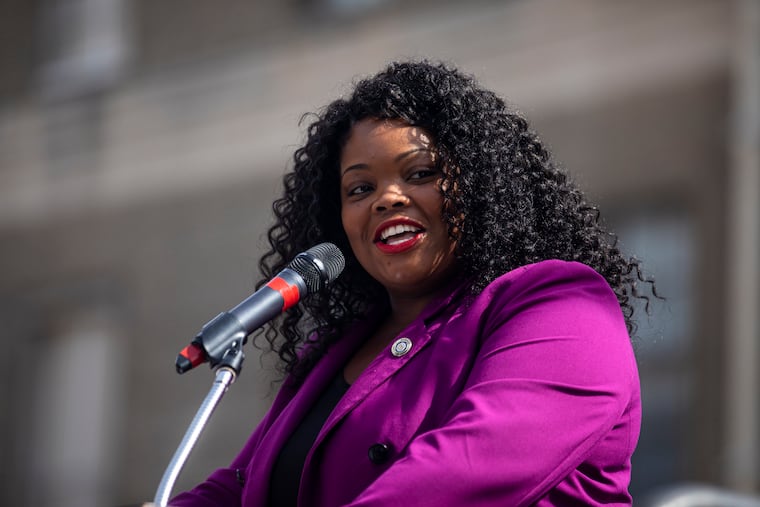Philadelphia can’t curb the climate crisis without federal support | Opinion
President Biden has put out a plan that finally invests directly in the families and communities that need it the most.

Philadelphia needs only to look at the events of the past few weeks to see the damage climate change is already causing to our neighborhoods.
In recent months, Hurricanes Ida and Isaias forced residents out of their homes in neighborhoods like Eastwick, damaged businesses and submerged some of our high-profile roads — even the Vine Street Expressway — under feet of water.
The science is clear: If our nation doesn’t take the necessary steps to curb harmful carbon pollution soon, we will be locked into an irreversible downward spiral of catastrophic events that will put all of our communities at risk.
Like the devastation caused by the ongoing COVID-19 pandemic, these impacts will fall disproportionately on Black and brown families who have fewer financial resources and are more likely to live in neighborhoods more susceptible to flooding and rising temperatures, and less likely to have enough green infrastructure.
Here in Philadelphia, we have taken the lead as a model for how municipal governments can address this growing threat.
In the past few years, we have worked to invest in our storm-water infrastructure through the nationally recognized “Green City Clean Waters” initiative to reduce the burden of our aging sewer system. We have committed to increased purchases of green, renewable energy. And we have worked to create policies and programs that address our largest source of carbon emissions, the built environment.
Yet the size of the problem is so massive, we can only meet it if the federal government is willing to partner with us.
Fortunately, President Biden has released a landmark $3.5 trillion Build Back Better plan that puts the fight against climate change front and center.
Build Back Better would fundamentally restructure our economy, reducing our emissions by investing billions of dollars in clean, sustainable industries: expanding renewable energy, installing electric vehicle charging infrastructure, and reducing emissions from existing industries.
At the same time, it would address a number of other environmental hazards that are plaguing our city, from toxic schools that threaten the health of our children and teachers to lead water pipes.
At its heart, Build Back Better is one of the biggest investments in family-sustaining union jobs in our nation’s history. It recognizes that the fight against climate change and other environmental threats is a historic opportunity to boost labor unions while powering a clean energy economy.
It would put people to work building a 21st century electric grid, installing new solar panels and wind projects while upgrading transmission lines, and building out an electric vehicle charging infrastructure to green our cars, buses, and trucks.
And it would put even more people to work addressing other environmental hazards, from replacing lead water pipes that threaten our children’s development to remediating contaminated Superfund sites that blight lower-income communities.
Yet this agenda, the centerpiece of President Biden’s first term, is currently at risk by some members of Congress who seek to delay its passage and shrink the overall amount of funds it includes, saying that wealthy individuals and multinational corporations who have benefitted from Trump tax giveaways shouldn’t have to shoulder their fair share of the burden for providing critical government services.
The components of the Build Back Better plan aren’t just wildly popular with the American public, they are also essential for putting our economy on more sustainable footing by investing in local communities and finally addressing a long legacy of failed economic policies that have stoked multigenerational poverty in too many Black and brown neighborhoods in Philadelphia.
Philadelphia’s own congressional representatives, Reps. Dwight Evans and Brendan Boyle, sit on the powerful Ways and Means Committee, which is charged with drafting key portions of the final bill, and will play a critical role in shaping a final legislative package.
It’s time to meet this historic moment with action that will transform our nation by investing in our people to save the planet.
Katherine Gilmore Richardson is Chair of City Council’s Committee on the Environment.